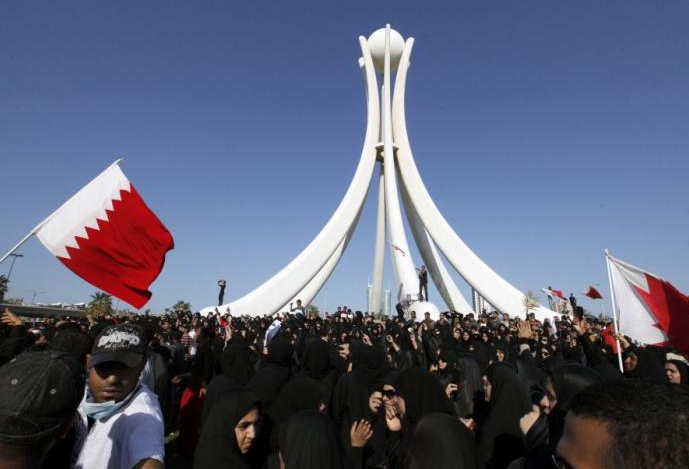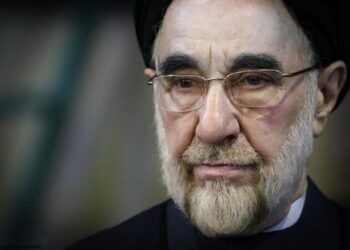
The United States announced Monday it is resuming military aid to Bahrain, citing “meaningful progress” on human rights, four years after the kingdom launched a crackdown on Shia protesters despite US insistence on negotiations rather than repression.
The resumption in aid isn‘t as much of a surprise as the fact that the suspension lasted a full four years. The US Navy’s headquarters for its Fifth Fleet, which patrols the Persian Gulf and northwestern Indian Ocean, is in Bahrain.
“The administration has decided to lift the holds on security assistance to the Bahrain Defense Force and National Guard that were implemented following Bahrain’s crackdown on demonstrations in 2011,” State Department spokesman John Kirby said Monday.
“While we do not think that the human rights situation in Bahrain is adequate,… we believe it is important to recognize that the government of Bahrain has made some meaningful progress on human rights reforms and reconciliation,” Kirby said. He did not cite any specifics.
About 100 people have died in the protests, a number that is very small when compared with the “Arab Spring” uprisings elsewhere across the Arab world. The death toll in Syria has now passed 220,000.
Analysts generally agree that Bahrain has done little to achieve reconciliation between the Shiite majority and the Sunni ruling family. But the protests have subsided in recent years, though they have not ended.
From the very beginning of the protests, the United States emphasized the need for talks between the ruling family and Shiite majority and criticized Bahrain for resorting to physical coercion. Bahrain ignored the Americans and turned to Saudi Arabia and the UAE, which sent a few thousand troops to the island. Those troops generally guarded sites all around the island, freeing up Bahraini troops to concentrate on the areas of Shiite resistance.
US officials did not specify what weaponry or equipment would be transferred to Bahrain, but they did stress that the United States “will maintain restrictions on security sales to the Bahrain Ministry of Interior” or MOI, which has been accused of excessive force.
Washington has said the ministry “bore the preponderance of responsibility for government abuses in 2011,” according to State Department officials.
“We will lift this restriction as we determine that the government has taken additional, significant steps to improve MOI accountability and its treatment of detainees.”
Human Rights First, a New York- and Washington-based group, condemned the decision, calling it a “major blow” to efforts to pressure Bahrain to implement human rights reform. “There is no way to dress this up as a good move,” said the group’s Brian Dooley. “It’s bad for Bahrain, bad for the region and bad for the United States.”
He said Bahrain’s military is almost exclusively Sunni, and expressed concern at increased sectarianism in the region.
The Shia protests erupted in 2011 demanding a constitutional monarchy and an elected prime minister. Bahrain swiftly blamed Iran. US officials have said Iran had nothing to do with the start of the protests but has tried to keep them going with limited aid to the protesters and propaganda encouragement broadcast from Iran.
On June 16, a Bahrain court jailed prominent Shiite opposition leader Ali Salman for four years for inciting disobedience and hatred in the kingdom. That has prompted very strong criticism from Iran, although the prison term is extremely short by Iranian standards, where seven-year terms have been meted out recently to Iranians making mild criticisms of the regime on Facebook.














